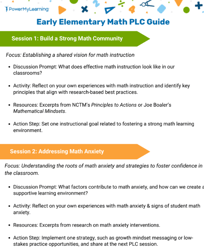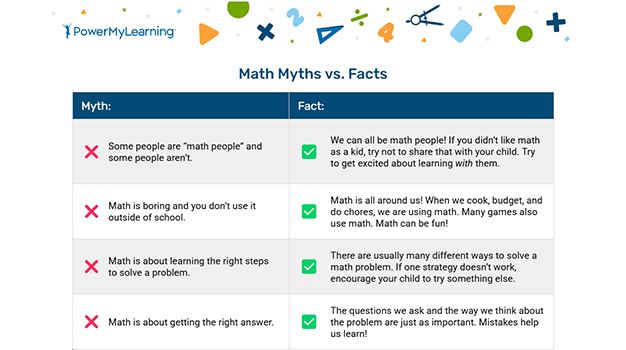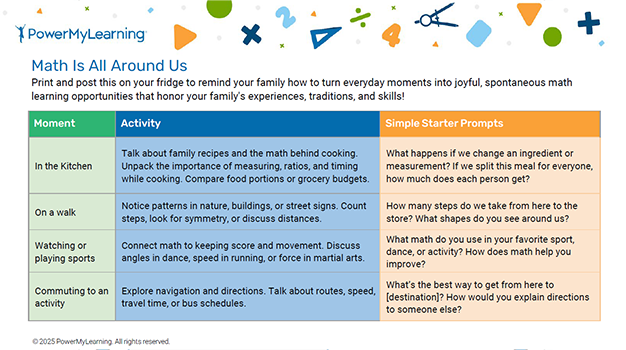2025 NCTE-NCTM JOINT CONFERENCE
Toolkit: Break the Math Anxiety Cycle
Thank you for joining our NCTE-NCTM session with Dr. Michelle Pyo (LinkedIn) and Brandon Schuler (LinkedIn)! This curated toolkit brings together research-backed routines, games, and reflection tools designed to help you build rigorous, confident math learning environments. These strategies support both teacher and student mindsets and are grounded in proven practices to reduce math anxiety and deepen engagement.
📩 Ready for more? Complete the form at the bottom of the page to learn how we can team up to support your elementary math learners.

Grow Math Mindsets
- Reflective Math Journaling: Encourage students to unpack their relationship with math through writing. Prompt students to reflect on past experiences, express emotions, and reimagine what’s possible in their math journey.
- Elementary Math PLC Guide: Use this professional learning community (PLC) guide to strengthen your team’s capacity around math discourse, data-driven instruction, and reducing teacher math anxiety.

Play-Based Math Games
- Math Myths vs. Facts [Spanish]: Before you get started, mindset matters! Debunk harmful myths and reinforce that every student is a “math person.”
- K-8 Math Games with a Deck of Cards: These easy-to-play card games for grades K-8 help strengthen key math skills while fostering a growth mindset. Each game outlines the skills being strengthened and the number of players needed.

Strengthen Math Discourse
- Six Guiding Questions: Flip traditional roles and have students “be the teacher.” These prompts foster deep thinking, explanation, and clarity during homework time.
- Learning by Teaching Family Math Prompts [Spanish]: Help families support math learning at home with questions that encourage reasoning and connection.

Connect Math to Daily Life
- Math is All Around Us: Invite your families to use this fridge-friendly resource to create fun math moments in everyday routines like cooking, shopping, and play.
- Family Math Interview [Spanish]: Encourage students to interview a family member about how they use math in everyday life, sparking positive math conversations.
Try Daily Math Routines
Explore these everyday strategies from our presentation that foster reasoning, agency, and joyful math learning.
- Notice and Wonder: Invite students to observe a mathematical situation and share what they notice (facts, patterns, or features) and what they wonder (questions or curiosities). Spark curiosity, engagement, and open-ended thinking before diving into problem-solving.
- Which One is Unique: Present multiple items (numbers, shapes, graphs, etc.) and ask students to identify which one is unique and explain why. Every option can be argued as the outlier, promoting reasoning, justification, and multiple perspectives.
- Number of the Day: Share a single number and invite students to explore it in various ways, such as writing equations, identifying place value, or finding factors. Strengthen number sense, flexibility, and fluency through repeated, varied practice with numbers.
- Menu Math: In this variation on "Number of the Day," present students with a set of items, each assigned a dollar value, and challenge them to choose a combination that fits within a set budget (e.g. "make an $8 pancake"). Build strategic thinking and mental math.
Further Learning
- Dear Math [book]: Co-authored by teacher Sarah Strong and student Gigi Butterfield explores themes from hundreds of student letters—offering insights to help educators design math classrooms where all students can thrive.
- Math Mind [book]: Shalinee Sharma shows how complex problem solving and puzzle solving, abstract and logical thinking, developing fluency with numbers, and cultivating persistence in math are crucial skills for success that can be taught to everyone.
- YouCubed [website]: YouCubed provides research-based teaching methods, mathematics tasks, videos, and ideas intended to significantly reduce math failure and inequality in the United States and beyond.
- Why So Many Students Struggle With Math Anxiety—and How to Help [EducationWeek]: Widespread math anxiety affects up to 30% of U.S. students, undermining confidence and long-term achievement, just as demand for math skills rises across careers.
- Teachers conquering their math anxiety [The Hechinger Report]: Many early elementary teachers struggle with math anxiety due to limited training and confidence in the subject, which can negatively affect how much and how well math is taught to young children.
- How to support teacher and student agency in the math classroom [NWEA]: Empowering teachers and students with choice and ownership fosters deeper engagement. With trust and support from leaders, small mindset shifts can drive big classroom impact.
- Mathematics In Context: The Pedagogy Of Liberation [Learning For Justice]: Learn how math, when taught with radical love and cultural relevance, can empower marginalized students and challenge systems of injustice. Bonus: this article also comes with a toolkit.
Let's Strengthen K-5 Math Outcomes Together!
Family Playlists are our evidence-based K-2 math practice tool that bring many of the strategies in this toolkit to life.

Step 1
The teacher assigns a standards-aligned playlist (e.g., “Put Together Word Problems”).

Step 2
The family partner receives a text message in their preferred language, and opens the activity in any browser. The family partner and child complete a math game together.

Step 3
Then, the family partner submits a 1-2 minute video or audio file of the child answering a few prompts to explain what they learned from the game.
These play-based activities strengthen math discourse, build growth mindsets, and surface student thinking—giving teachers insight into how students think about math, not just whether they got the right answer.